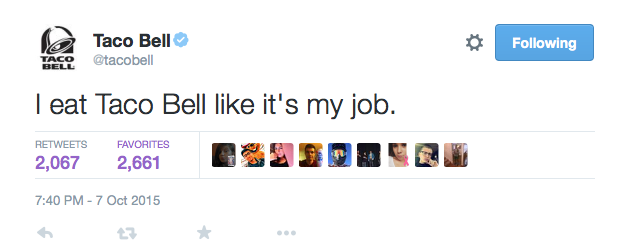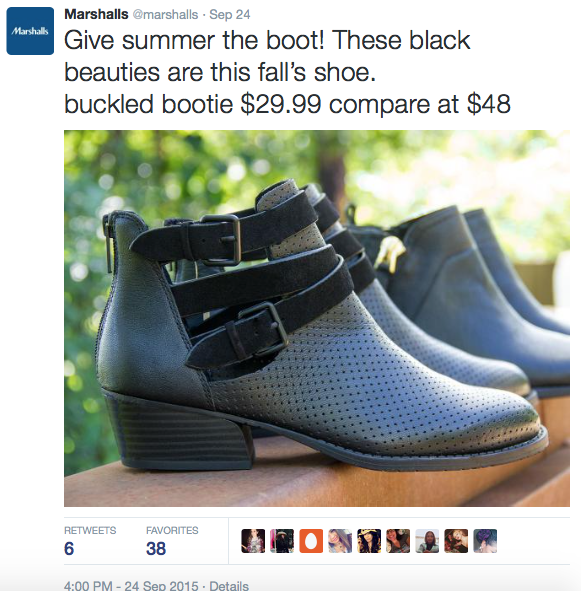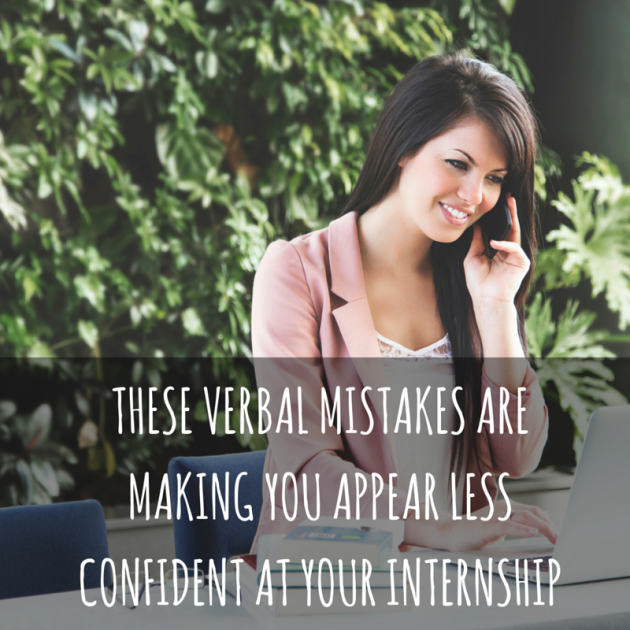 A lot of people generalize marketing as one huge part of a company where every employee knows how to do everything. Those of us starting to work in various marketing internships and jobs know that is absolutely not true! There are plenty of different routes you can take your marketing degree, not to mention you can work in any industry that appeals to you. The possibilities are endless! In the next few weeks and months I’ll be exploring some different marketing focuses that may tailor to your interests to help you find your perfect fit!
A lot of people generalize marketing as one huge part of a company where every employee knows how to do everything. Those of us starting to work in various marketing internships and jobs know that is absolutely not true! There are plenty of different routes you can take your marketing degree, not to mention you can work in any industry that appeals to you. The possibilities are endless! In the next few weeks and months I’ll be exploring some different marketing focuses that may tailor to your interests to help you find your perfect fit!
This week I’m exploring a side of marketing that unexpectedly has fascinated me- partnerships and sponsorships. My first internship was dedicated solely to starting, developing and activating partnerships with brands that to some seemed completely unrelated. From there, I’ve made an effort to become involved in the sponsorship aspects of other companies I’ve worked for. It’s incredible what kinds of relationships can be developed with a bit of creativity and strategy!
So what exactly is a sponsorship? Well, it’s easier to understand than to define. Here are a couple of definitions:
Advertising that seeks to establish a deeper association and integration between an advertiser and a publisher, often involving coordinated beyond-the-banner placements. –Marketing Terms
Sponsorship can be difficult to define with a single label. It can mean logo placements, banners and pre-roll video ads—or it can mean streaming concerts, brand-created articles, along with sponsored events and webinars. –eMarketer
You know sponsorships when you see them. The name of the arena in your city is likely named after a brand, you’ve probably entered a contest sponsored by a brand in order to win a trip or tickets to something, or you’ve gone to an event with dozens of logos plastered across banners and t-shirts. These are all different types of sponsorships. Typically, a lot of thought goes into securing these relationships to make sure the brand paying for the sponsorship benefits while the one offering the sponsorship does not upset their own customers or fans.
Although the terms sponsorship and partnership are often used interchangeably, I’ve noticed slight differences in when each term is used. A partnership is more of a dually beneficial relationship between two brands. These tend to be much more strategic in order to reach both brand’s goals instead of just selling logo placement. Since both brands want to benefit, there’s a lot of communication between the other to plan and activate the partnership. You have to know how to work with others in order to be successful!
Why would you want to work in sponsorships? Personally, I’ve found it to be a lot of fun! You get to meet people who work in various industries, which can build your network. Even if it’s an industry you’re not interested in, you’ll learn a whole lot about how it works and how your counterparts in those industries work. You also get to be creative. In my opinion, the best partnerships are those that push the limits on what is considered a normal sponsorship. Take for example this list of Best Strategic Brand Partnerships in 2014 from Forbes– One of my favorites on this list is between Shake Shack and Big Gay Ice Cream- any New Yorkers remember this?
Shake Shack & Big Gay Ice Cream’s Rainbow Layer Shake: The limited time offer increased awareness of Big Gay Ice Cream in New York City, its base, and drove traffic into Shake Shack. The brand imagery rub off was also a positive, as it positioned Shake Shack as very inclusive, to its highly diverse target audience.
Yummy and effective? That’s my kind of partnership!

If you’re both creative and think strategically, working on sponsorships can be an extremely rewarding experience. There are plenty of internships that specifically focus on sponsorships specifically, but you can also touch sponsorships in other marketing positions. If you’re at a company that does actively partake in sponsorships, ask to meet with the managers in charge to get involved with the process. My favorite part of the entire process is activation. You actually get to see the months and months of planning between the two brands come to life. It’s also awesome to see how guests/consumers/customers interact with the activation!
Even if you don’t work specifically in sponsorships, knowing the importance and strategy of them can be beneficial to you in your marketing career. IEG provides news and data on the sponsorship industry. You need an account to access a lot of their website, but their blog posts also provide a lot of good information!
If you have questions about interning in sponsorships and partnerships, feel free to reach out and I can try to answer any questions!









